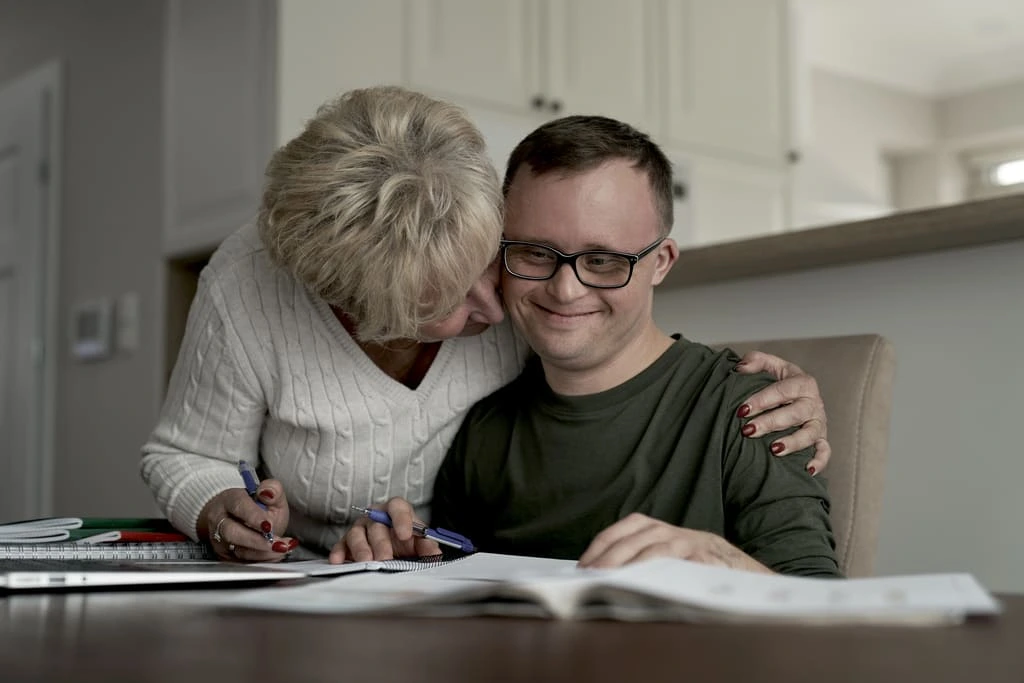What is High-Functioning Autism?
Widely acclaimed diagnostic tools like the DSM-5 and the ICD-10 don’t subdivide Autism based on intellectual abilities. Therefore, high-functioning Autism is an informal umbrella term for Autism Spectrum Disorders with milder symptoms rather than a formal diagnosis. High-functioning Autism generally does not impact an individual’s ability to speak, read, write, and partake in everyday activities such as getting dressed and eating. However, high-functioning individuals still need support to reach their full potential.
Like all Autistic individuals, high-functioning people on the spectrum find social interactions challenging and face various social and communication difficulties. They may find it hard to make eye contact, engage in small talk, and read social cues (such as body language or sarcasm). This leads to social anxiety and difficulty maintaining meaningful relationships with family members and friends. High-functioning Autistic children and adults may also have specific interests and exhibit repetitive behaviour patterns.
The academic and professional performance of high-functional autistic children and adults may vary. Some autistic adults and children can excel in the workplace or the classroom, while others may find some tasks overwhelming. A late Autism diagnosis prevents high-functioning people on the spectrum from receiving the professional care they need and developing a sense of self-acceptance.
At Leaf Complex Care, we provide proactive and compassionate support for Autistic individuals, tailoring our approach to each person’s unique needs and preferences.
Signs and Symptoms of High-Functioning Autism
Autism is a neurological difference, and high-functioning forms of Autism Spectrum Disorder are characterised by mild symptoms.
Below is a list of the most common high functioning Autism symptoms:
- Obsessive focus on specific activities or subjects of interest
- Excellent pattern recognition
- High levels of emotional sensitivity
- Extreme shyness, withdrawal, and behaviours that are perceived as socially inappropriate
- Exceptionally rich vocabulary
- Strict routines
- Sensory issues (hypersensitivity to light, sound, touch, smell, or taste)

Why is High-Functioning Autism Often Diagnosed Later in Life?
Parents and teachers can usually provide an early Autism diagnosis in toddlers or school-age children due to signs. However, HFA causes milder symptoms that usually don’t impact the person’s intellectual abilities, thus remaining unnoticed in older children, adolescents, and even adults. High-functioning Autism late diagnosis is often due to above-average intelligence levels and efforts to fit in by masking symptoms.
High-functioning children on the spectrum can effectively perform basic tasks, use language, and pass IQ tests – which keeps parents and teachers from suspecting a difference. Some HFA children can use their unique strengths to go through elementary school with minor issues. However, they start facing difficulties later in their education process when social interaction with their peers gets more complex, and schoolwork becomes more demanding.
Research shows that autistic women and girls are less likely to receive a timely ASD diagnosis. Experts suggest that high-functioning girls tend to be less aggressive and more dedicated to hiding their symptoms, which is why they don’t fit the stereotypical image of Autism Spectrum Disorder.
Overlooking Symptoms Due to Other Diagnoses
Many HFA individuals can be diagnosed with other related differences instead of getting an early diagnosis of Autism. For instance, they may be diagnosed with social anxiety, attention-deficit hyperactivity disorder (ADHD), obsessive-compulsive disorder (OCD), and other mental health challenges or neurological differences. Signs of Autism in children with other diagnoses may be overlooked, so they often receive a proper diagnosis in their teenage years or even adulthood.
Is Asperger's Syndrome High-Functioning Autism?
High-functioning Autism and Asperger’s syndrome (AS) are similarly defined as milder forms of ASD. However, the most notable difference between these two is their effect on the individual’s language skills. Children with Asperger’s syndrome usually acquire language without significant disruptions, whereas HFA can cause language delays in early childhood.
For this reason, HFA children might have been diagnosed earlier than those with AS. In some cases, children initially diagnosed with a high-functioning form of Autism may have had an Asperger’s diagnosis after a better assessment of their social, communication, and cognitive skills in their school-age years. AS is no longer a formal diagnosis and is now seen as part of Autism Spectrum Disorder. However, some individuals may prefer to keep the term.
Emotional and Psychological Impact of a Late Diagnosis
As per the National Autistic Society, around 70% of individuals on the spectrum cannot access the support they need on their journey until much later in life. High-functioning children on the spectrum usually have lower support needs, which means their symptoms often remain undetected by their parents or teachers. In addition to that, some people may have had no access to a formal assessment due to a negative perception of Autism and a subsequent hesitation to pursue a diagnosis.
Receiving a proper diagnosis is vital for the improvement of autistic people’s quality of life at any age, especially in their adolescence and adulthood. Obtaining an Autism diagnosis can scientifically explain a person’s differences and provide them with a sense of self-identification. This prevents people on the spectrum from interpreting their symptoms as a personal failure and developing low self-esteem. New studies show that neurodivergent people diagnosed in adulthood rather than childhood often struggle with more intense symptoms, develop related mental health issues, and generally have a lower quality of life.
Before receiving an Autism diagnosis, people on the spectrum struggle with sensory challenges and social difficulties affecting various areas of their lives. The Autism diagnosis allows people on the spectrum to finally understand themselves with all their unique traits and start living up to their full potential. It allows people to address social and professional issues, improve their self-esteem, and advance their overall well-being.
Late Diagnosis of High-Functioning Autism and Anxiety
Like all autistic people, high-functioning individuals on the spectrum are prone to developing anxiety, especially when they go years without a proper diagnosis. High-functioning children and adults with ASD may experience significant levels of stress in complex social situations and the presence of sensory triggers. Furthermore, their dedication to restricted routines causes distress in cases of unexpected change.
Undiagnosed autistic individuals are prone to anxiety because they struggle to identify, understand, and manage their emotions. Society puts them in a constant state of being misunderstood and masking their symptoms in order to fit in and be accepted by neurotypical people. These circumstances often lead to increased anxiety and have a negative effect on the person’s general mental health.
Impact on Family and Friends
High-functioning forms of Autism can affect a person’s relationship with their friends and family. Although HFA doesn’t usually impact the individual’s language skills and intelligence, it causes difficulty reading social cues, inability to understand other people’s emotions, and subsequent social withdrawal in general. Neurotypical peers and family members may misinterpret these behaviours.

Find Support with Leaf Complex Care
At Leaf Complex Care, we take a revolutionary approach to supporting high-functional children and adults on the Autism spectrum in their own homes. For our trained support workers, delivering proactive care to the people we serve is the utmost priority. Our support workers recognise the importance of finding your identity after years of struggling to fit in, as well as the post-diagnosis need for support.
Our support workers make sure they are familiar with the nuances of every adult or child’s Autism diagnosis. They work closely with family members, caregivers, and educators in order to assess the person’s unique requirements. After that, our practitioners outline a personalised care plan according to the individual’s medical needs, schedule preferences, potential triggers, and personal boundaries. Tailored care plans enable support workers to provide care for Autistic individuals in a respectful, dignified, and comfortable environment.
If you need a quality home care provider to deliver support for HFA for yourself or a loved one, Leaf Complex Care is the right place for you. We provide person-centred, humanised care for Autistic children and adults in Bristol, Somerset, Slough, and the Midlands.
Contact us at our phone number or email address now, and we will create a tailored care plan catering to your specific needs.


















